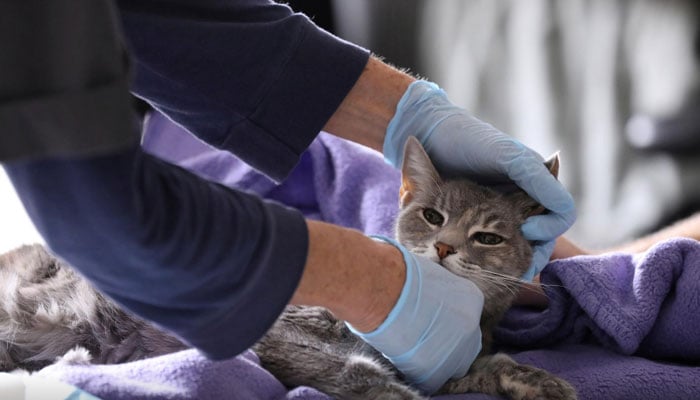Cat lovers cautioned as COVID variant that killed 8,000 cats in Cyprus, surfaces in UK
Not linked to COVID-19, F-CoV-23 is a variant known as feline infectious peritonitis (FIP), a type of coronavirus
November 12, 2023

A concerning strain of COVID designated F-CoV-23, responsible for over 8,000 cat deaths in Cyprus, has now surfaced in the UK.
The infected feline was brought into the country from Cyprus, raising fears about the health of British pets. Although technically not linked to COVID-19, F-CoV-23 is a variant known as feline infectious peritonitis (FIP), a type of coronavirus.
The strain, believed to be a hybrid of existing feline and canine coronaviruses, caused a notable outbreak in Cyprus. Analysis conducted by the University of Edinburgh, the Royal Veterinary College, and the Cypriot government revealed that the infected cat in the UK shared a "genetic fingerprint" with 91% of infected cats in Cyprus.
Cypriot authorities reported over 8,000 cat deaths in the first half of 2023, with estimates suggesting the true number could exceed 300,000.
The infected British cat, displaying symptoms, has been subjected to tests and treatment. Scientists emphasise a "significant risk" of the outbreak spreading further, although, before peer review, they acknowledge the confirmation of the first UK-imported case.
Unlike previous feline coronaviruses, F-CoV-23 appears to spread more readily and no longer relies on changes or mutations in the host.
While there is currently no evidence that this strain can infect dogs or humans, experts advise cat owners against keeping their pets indoors or away from other animals, as there is no apparent threat to humans or dogs.
Ongoing investigations into other cases aim to monitor the situation closely.











